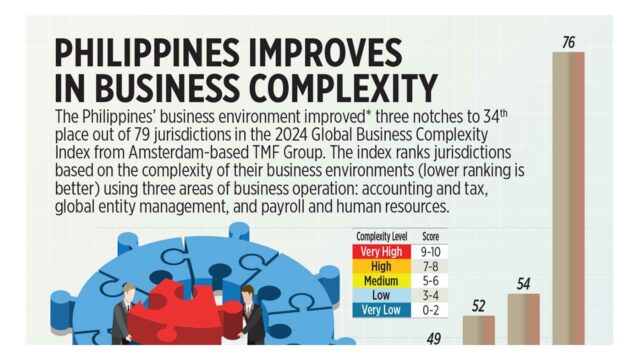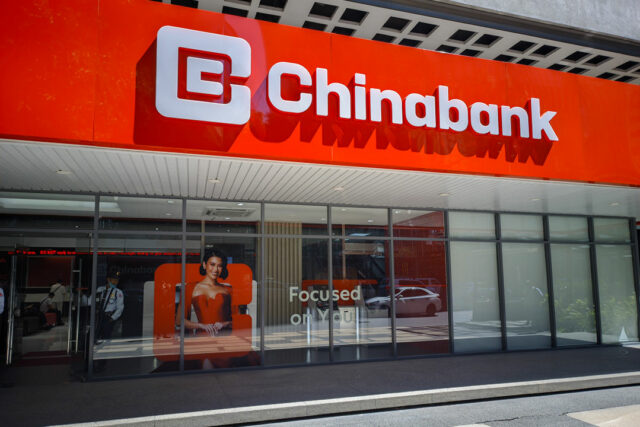DAVID HADDAD, the head of video games for Warner Bros. Discovery Inc., visited the London offices of subsidiary Rocksteady Studios in mid-February for an all-hands meeting. While previous gatherings with the executive had been peppered with tactful euphemisms, this time Mr. Haddad was blunt, according to two people briefed on his remarks. Weeks after its release, the studio’s latest game, Suicide Squad: Kill the Justice League, was tanking.
Mr. Haddad shared few details on the exact scope of the Suicide Squad misfire, said the people, who asked not to be identified discussing nonpublic information. But it didn’t take long for them to find out the extent of the damage.
On May 9, during an earnings call, Warner Bros. revealed that it was taking a $200 million loss on Suicide Squad — making it one of the gaming world’s worst blunders.
Behind the scenes, according to interviews with nearly two dozen people who requested anonymity because they weren’t authorized to speak to the press, the development of Suicide Squad: Kill the Justice League was a tumultuous affair, plagued by countless delays. The game failed for a number of reasons, said the people, including a constantly shifting vision, a culture of rigid perfectionism, and a genre pivot that was ill-suited for the studio. A spokesperson for Warner Bros. Games declined to comment.
The costly miss could extend beyond Warner Bros. and “further deter investment in gaming by traditional media firms when they should be expanding,” said Joost van Dreunen, who teaches the video-game business at New York University.
The high-profile failure came at a particularly bad time for Warner Bros. Chief Executive Officer David Zaslav. The parent company of CNN, HBO, TNT and other cable networks was already grappling with challenges on multiple fronts, from plunging TV ad sales and struggling movie theaters to escalating sports rights fees and growing threats from artificial intelligence (AI). Over the past two years, the company’s share price had plummeted from $26 in April 2022 to a little over $8 the day of the call.
The games division was supposed to be a rare bright spot for Mr. Zaslav and his investors, particularly following the success of Hogwarts Legacy, an adaptation of the Harry Potter series, which was the best-selling title of 2023 and has sold more than 24 million copies. Instead, Rocksteady delivered a historic dud. For Warner Bros., it was a painful reminder that big, ambitious video games, like blockbuster-style movies, have the potential to amass both huge windfalls and gaping losses. On the call, Mr. Zaslav described it as a “disappointing release” that “overshadowed” the rest of the quarter.
For years, Warner Bros. has been struggling to transform its DC Comics assets into a wellspring of recurring hits, much as the Walt Disney Co. has done with Marvel Comics. In August 2016, Warner Bros. released Suicide Squad, a gory sci-fi action movie based on the comic book series, which originated in 1959. The film, starring Will Smith and Margot Robbie, featured a platoon of villains strong-armed by the US government into a dangerous mission to save the world. It went on to generate ticket sales of $750 million on a budget of $175 million, a major boon for the studio.
Afterward, the company hustled to build on the momentum. At its gaming studio in Montreal, Warner Bros. already had a Suicide Squad video game that was struggling to gel. With the stakes heightened, Mr. Haddad pulled the plug and turned, instead, to the most prestigious of the company’s dozen video-game studios.
Founded in London in 2004, Rocksteady had grown into an industry darling thanks to Batman: Arkham, a series of games that was revered by critics and sold millions of copies. Following Rocksteady’s third and final installment, which came out in 2015, the studio’s co-founders Jamie Walker and Sefton Hill, eager to do something different, started working on a prototype of an original multiplayer puzzle-solving game, codenamed Stones.
Around the end of 2016, Walker and Hill told their staff there’d been a change of plans. Stones was out. Suicide Squad was in. According to people who attended the meetings, Hill explained that he saw it as a better opportunity than making something new from scratch and that the company hoped to release the game in 2019 or 2020. (Walker and Hill declined requests to be interviewed for this story.)
At the time, the broader industry was growing increasingly fixated on “games as a service” — such as Destiny and League of Legends — which generate sales long after their initial release, continuously reengaging players with endless updates and raking in fresh profits year after year. Armed with a battery of presentations, Warner Bros. executives traveled to London and made the case that the growing category was the industry’s future.
It was a field in which Rocksteady had no prior experience. The Batman: Arkham games were all single-player. Even so, Rocksteady executives soon decided that, in keeping with their parent company’s newfound enthusiasm, Suicide Squad would become an online multiplayer game with live-service content.
As it set out to master a new set of skills, Rocksteady expanded. Over the next seven years, it would swell from roughly 160 to more than 250 people — a size that grew unwieldy for managers yet still remained far smaller than the enormous teams behind similar games, such as Destiny.
During the early days, the studio kept its work on Suicide Squad a secret, even from potential hires. Several people who came on board during this era said they were surprised when they first arrived at the offices to learn that they would be working on a multiplayer game, not at all what Rocksteady was known for. Many would depart as a result.
Over time, the leaders’ vision kept morphing, most notably switching from an emphasis on melee combat to heavily focusing on guns. The change left some staff members wondering why protagonists such as Captain Boomerang, known for fighting with his namesake weapon, would suddenly pivot to gunplay.
In August 2020, after three years and multiple delays, Rocksteady finally revealed its plans, telling fans Suicide Squad would be released in 2022. But additional frustrations kept piling up. The project’s massive world and four playable heroes were a significant increase in complexity from the Arkham games. Engineers, under the impression they were rushing toward an immutable deadline, prioritized short-term fixes that later proved to be hindrances as the release date kept getting pushed back.
Staff members sometimes waited weeks or months for Hill, the studio’s perfectionist co-founder and director of the game, to review their work, said the people familiar, creating a bottleneck that further slowed development. He scrapped big chunks of the script and struggled to convey his evolving ideas, they said, confessing that he hadn’t spent much time with competing games such as Destiny. The constant delays hurt morale and led staff to fret that they were discarding too much and failing to make real progress.
At one point, Hill pitched an elaborate system of vehicles that would allow players to deck out cars with weapons and navigate through the game’s alien-infested streets. But each of the four playable characters were already outfitted with modes of traveling, leading to more doubts among staffers. Why, they wondered, would players using Deadshot or King Shark bother with a motorcycle when they could just soar through the air? After months of experimentation and prototyping, the vehicle system was scrapped.
One of the biggest issues, said people familiar, was that the battles, levels, and bosses in a live-service game needed to be designed so players could tackle them over and over again, while Rocksteady was accustomed to telling stories that were only experienced once. Hampered by bloated code, the team struggled to find ways to make these activities feel less tedious and repetitive.
Multiple people who worked on the project say their growing concerns were often met with promises from management that Suicide Squad would eventually coalesce at the last minute, just as the Arkham games had. Several employees adopted the term “toxic positivity” to describe the culture of the company, which discouraged criticism. Leadership didn’t seem worried, they say, even as other traditionally single-player game studios that chased the live-service trend were delivering abysmal results with games such as Anthem (which earned a lowly score of 59 out of 100 on Metacritic), Marvel’s Avengers (67 out of 100), and Redfall (56 out of 100).
Despite the internal concerns among frontline workers, executives from Warner Bros. kept reviewing demonstrations of the game and sending laudatory feedback, praising the graphics and saying they expected Suicide Squad to become a billion-dollar franchise.
Whatever the outcome, the studio’s co-founders wouldn’t be there to see it through. In the fall of 2022, Warner Bros. announced that Hill and Walker were leaving Rocksteady to work on “a new adventure” and that a pair of longtime employees, Nathan Burlow and Darius Sadeghian, were being promoted in their wake. The change in leadership shocked the Rocksteady staff, and Hill and Walker said little in public to elaborate on their reasons for leaving. Later, when they started a new studio called Hundred Star Games, they told potential recruits from Rocksteady that they would have the opportunity to make a game free of the mandates and pressures from a corporation like Warner Bros.
Not long after the pair left, Suicide Squad was shown to the world for the first time in a digital PlayStation showcase that revealed 10 minutes of footage. Fans were largely unimpressed and slammed the preview for looking generic and repetitive. One Forbes writer described it as “live service hell.”
Shortly after the showcase, Warner delayed the release again, leading fans to wonder if Rocksteady might pivot away from the uninspired “looter shooter” genre to something else entirely. But it was too late.
In February 2024, Rocksteady released Suicide Squad. Employees were hopeful that players might enjoy individual pieces, such as its beautiful graphics or clever banter. But critics panned the overall experience, ranking it alongside other live-service flops with a 60 out of 100 on Metacritic, and the game failed to reach a wide audience despite a pricy marketing campaign that included network TV commercials.
Despite the painful setback, Warner Bros. isn’t giving up on video games, a $262 billion global industry, according to PwC, that will grow to $312 billion in 2027. During the February meeting in London, Mr. Haddad said that Warner Bros. Games was looking to do more collaboration between its dozen studios and that the company was understaffed compared to competing publishers, so job cuts at Rocksteady wouldn’t make sense.
Many of the studio’s employees are now helping to develop a new “director’s cut” version of Hogwarts Legacy. At the same time, according to people familiar, the studio leaders are looking to pitch a new single-player game, which would return Rocksteady to its roots.
“I think they’ll definitely get another at-bat,” said TD Cowen analyst Doug Creutz. “Hopefully with something more aligned with their demonstrated talents.” — Bloomberg L.P.













